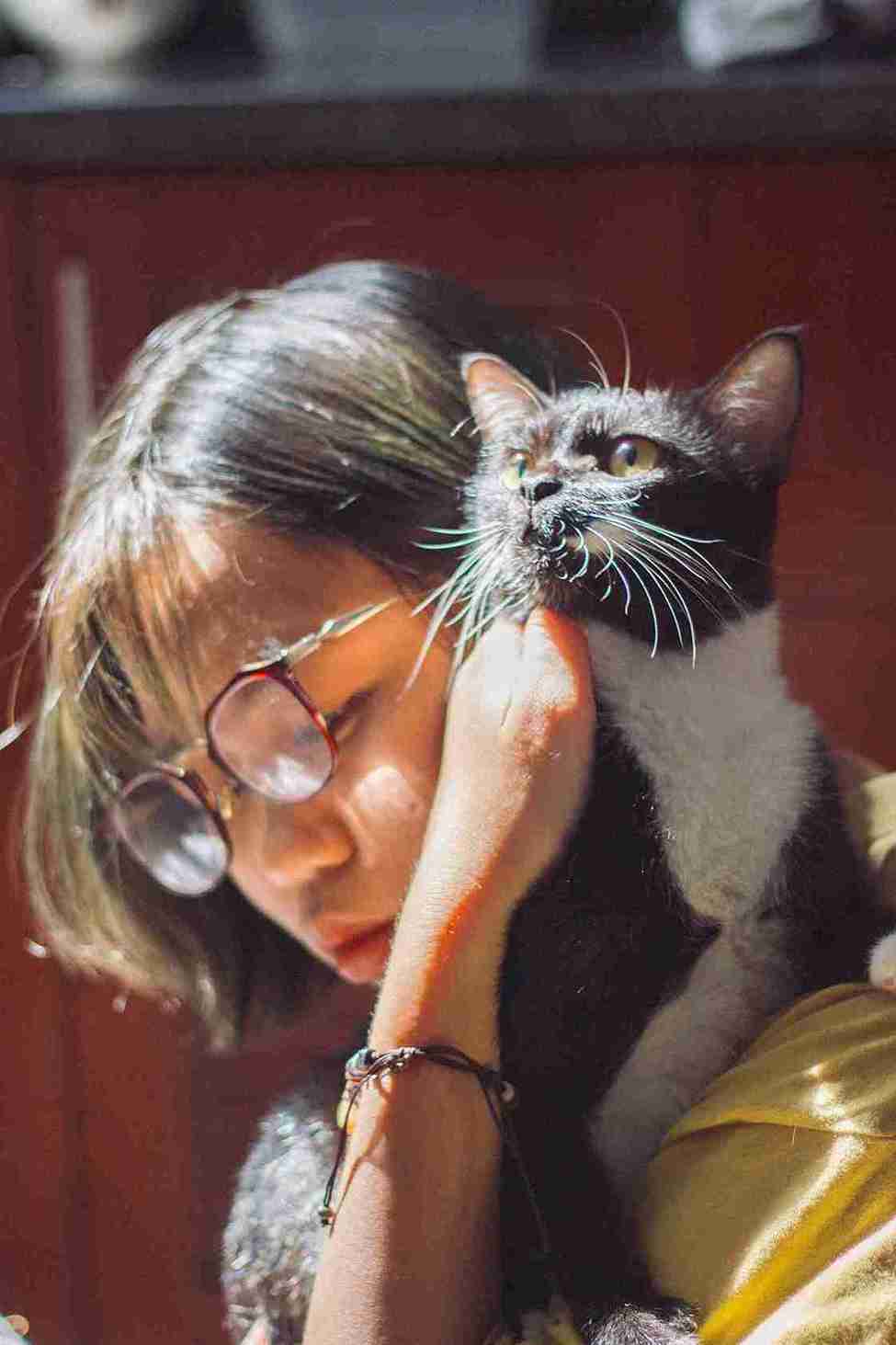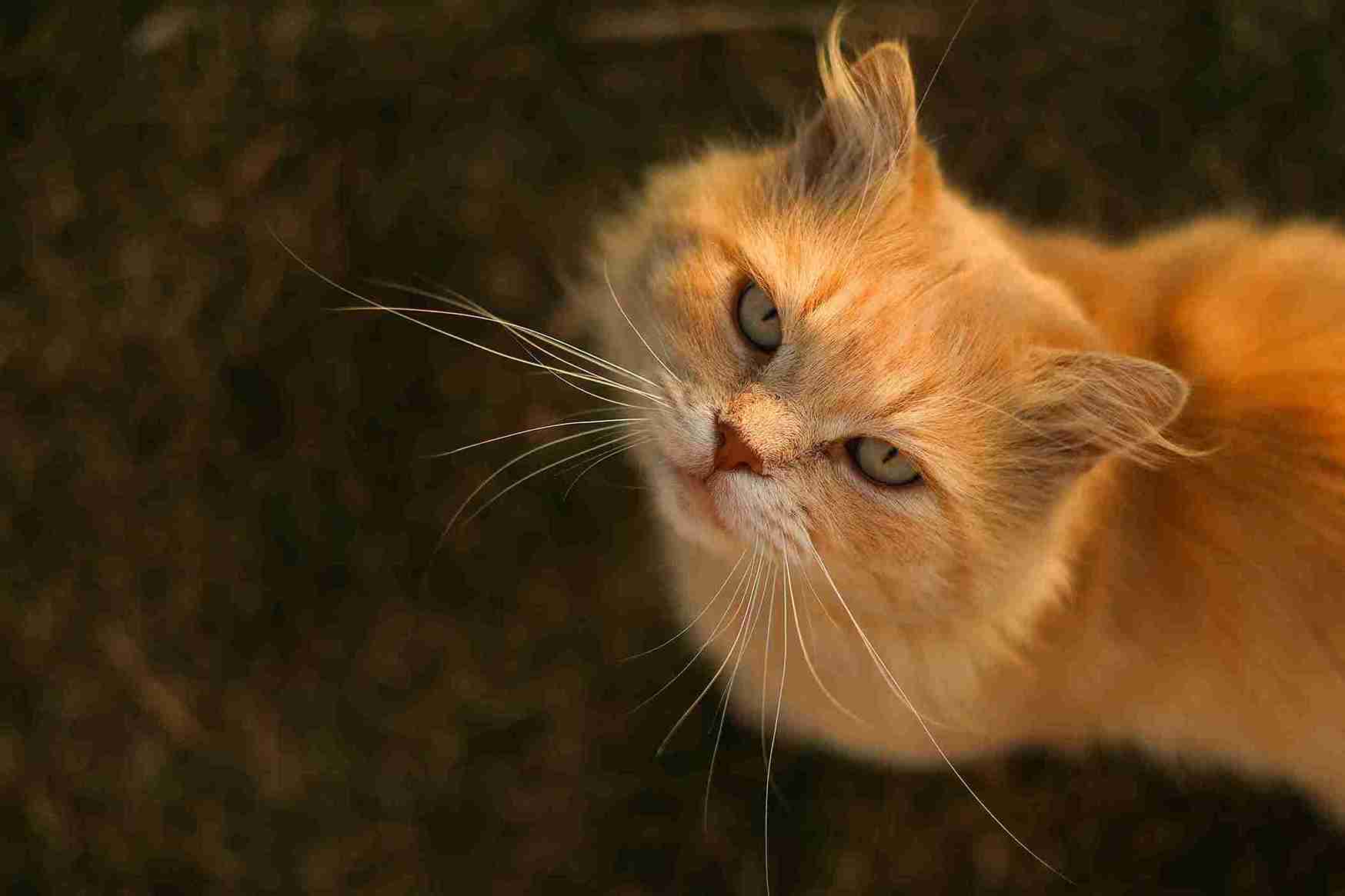Introduction: Why Cats Bite Your Hair
Many people assume that cats bite hair just to be “annoying” or that it’s a sign of bad behavior. That couldn’t be further from the truth. Hair biting is a natural behaviour for cats. It often shows affection, curiosity, or even stress. Knowing why your cat bites your hair can help you respond better and improve your bond.
Cats may bite or nibble hair while sleeping, during play, or even when they want your attention. This behaviour is quite common and can occur in both kittens and adult cats. It’s not about mischief—it’s about instincts, social behavior, and sensory curiosity.
Some of the reasons your cat might bite hair include:
- Affection and grooming instincts (cat grooming owner, cats nibbling hair)
- Playful behavior in kittens or high-energy cats (why does my kitten chew on my hair, cat play biting hair)
- Seeking attention from you (cat biting hair for attention)
- Stress, anxiety, or boredom (cat anxiety signs, cat pica behavior)
Recognizing these reasons can prevent frustration and help you redirect the behavior safely.
Understanding Cat Behavior: Grooming vs Play
It’s important to distinguish between grooming behavior and playful hair biting. Cats groom themselves and others to show affection and reinforce social bonds. When your cat licks or softly bites your hair, it’s usually mimicking allogrooming. This is how cats groom each other in a friendly or family-like way.
Grooming Behavior
- Cats may nibble or lick hair as a way of bonding with you (cat affectionate biting, cat licking, and biting hair).
- Kittens pick up this behaviour from their mother. Then, adult cats bring it into their relationships with humans.
- Hair biting during grooming is usually gentle and calm. It often comes with purring or kneading.
Playful Behavior
- Kittens and young cats often bite hair while playing. This is part of their exploration and hunting instincts (cat play biting hair, why does my kitten chew on my hair).
- Playful biting may include tugging, gentle nips, or chasing hair as if it were prey.
- Unlike grooming, playful bites may be more energetic and sporadic.
Affection and Social Bonding
Many cat owners think that when their cat bites their hair, it’s a sign of irritation or misbehavior. The truth is quite the opposite. In most cases, hair biting is a form of affection and social bonding. Cats don’t bite randomly. They often use their mouths to show trust, love, and connection.
Cats do something called allogrooming. This is when they groom each other to build social bonds. When your cat nibbles or gently bites your hair, it’s mimicking this behavior toward you. It’s their way of saying: “You’re part of my family.”
How Affection Shows in Hair Biting
- Gentle nibbles and light bites come with purring or kneading. This includes cat affectionate biting, cat licking, and biting hair.
- Cats may lick your scalp or hair to mark you with their scent. This behaviour includes chewing on your hair or grooming yourself.
- Repeated small nips during cuddle time show trust and closeness.

Attention-Seeking Behavior
Another common misconception is that cats bite hair only for love or play. Sometimes, hair biting is a way your cat asks for attention. Cats are clever. They soon learn that nibbling your hair gets a reaction. You might pet them, talk to them, or pick them up.
Signs Your Cat Is Seeking Attention
- If your cat bites their hair before an activity, like working or reading, it might be seeking attention.
- Combined behaviors like pawing at you, meowing, or rubbing against you.
- Nibbling your hair repeatedly until you engage with them.
Why Attention-Seeking Happens
- Cats may feel lonely, especially indoor-only cats.
- Some cats form habits where biting hair leads to interaction. Is it normal for cats to lick human hair? How can I stop my cat from chewing my hair?
- Young cats and kittens are more likely to use this behavior to learn boundaries and get responses from you.
Stress, Anxiety, or Compulsive Behavior
Many people assume that when a cat bites hair frequently, it’s just a quirky habit or playful behavior. That’s not always the case. In some cats, repeated hair biting can be a sign of stress, anxiety, or even compulsive behavior. Understanding this can help prevent health issues and keep your cat happy.
Cats are sensitive creatures. Hair biting can be a coping mechanism when they feel stressed or bored. For example, changes in routine, new pets, loud noises, or lack of stimulation can cause this behaviour. Some cats can develop a habit called pica. This is when they chew on non-food items, like hair.
Signs Hair Biting Is Stress-Related
- Excessive or obsessive biting of hair (cat anxiety signs, compulsive cat grooming).
- Hair biting combined with other anxious behaviors: pacing, meowing, hiding, or over-grooming.
- Cats may bite hair when left alone for long periods (cat biting hair separation anxiety).
How to Help Your Stressed Cat
- Provide mental stimulation and enrichment (puzzle feeders, interactive toys).
- Keep a consistent routine to reduce anxiety.
- Redirect hair biting to safe alternatives like toys or soft fabrics.
- Consider consulting a vet if the behavior is severe or obsessive.
Age and Personality Factors
A common misconception is that all cats bite hair for the same reasons. In reality, age and personality play a big role in hair-biting behavior. Kittens, adults, and seniors may all have different motivations.
Kittens and Young Cats
- More likely to bite hair as a form of play and exploration (why does my kitten chew on my hair, cat play biting hair).
- Hair can mimic prey, which stimulates their natural hunting instincts.
- Often combined with chasing, pouncing, or clawing lightly.
Adult Cats
- Hair biting in adults is often about grooming, affection, or seeking attention. This includes cats chewing on human hair or giving affectionate bites.
- Adults might bite when stressed or bored. However, they often have set routines and boundaries.
Senior Cats
- Older cats may bite hair gently during grooming sessions or as part of bonding rituals.
- Less likely to play with hair as a “toy” due to lower energy levels.
- Can also develop hair biting if they experience anxiety or cognitive changes.
Personality Differences
- High-energy cats often play with hair. They love to lick it, too. This shows their obsession with hair as a source of fun or stimulation.
- Calm or shy cats may nibble hair as a gentle sign of affection or comfort.
- Territorial or dominant cats sometimes bite hair to mark you with their scent. This helps with scent transfer and strengthens cat social bonds.
Situational Triggers: Hair Texture, Smell, and Scent Marking
A lot of people think cats bite hair randomly, without reason. Cats are very sensory animals. Certain textures, smells, or hair accessories can trigger hair-biting behaviour. Understanding these triggers can help you prevent unwanted nibbles.
Why Cats Are Attracted to Hair
- Texture: Long, soft, or flowing hair can look like prey or toys they like. Cats often play-bite hair, especially kittens. Cats may paw, nibble, or lightly bite strands.
- Smell: Hair holds scents from shampoos, conditioners, or perfumes. Cats find these smells intriguing or comforting.
- Scent Marking: Cats bite or nip gently to mark you with their scent. This helps strengthen their social bonds and claim their territory.
Situations That Trigger Hair Biting
- Wearing a ponytail or braid that dangles and moves.
- Brushing your hair near your cat seems like interactive play.
- Recent changes in hair products or scents that attract curiosity.
How to Safely Redirect This Behavior
Many cat owners think the only solution to hair biting is scolding or punishment. That’s a common mistake. Punishing a cat can create fear and stress, making the behavior worse. The best approach is gentle redirection and providing alternatives.
Steps to Redirect Hair Biting
- Offer toys, scratching posts, or interactive play. These satisfy your cat’s hunting instincts and can help with hair chewing.
- Interactive Play: Have daily play sessions. This helps burn energy and cuts down on attention-seeking biting. This often happens when a cat plays with or fixates on hair.
- Positive Reinforcement: Reward your cat for using toys instead of your hair. Treats or affection work well.
- Safe Chewing Options: Soft fabrics, ropes, or cat-safe chew toys can replace hair.
- Consistency: Avoid allowing hair biting sometimes and scolding other times—it confuses cats.
When Redirection Works Best
- During high-energy periods, such as after naps or meal times.
- When your cat starts to nibble hair before attention-seeking escalates.
- As part of a routine that combines play, mental stimulation, and grooming opportunities.
When to Be Concerned: Medical or Behavioral Issues
A lot of cat owners assume that hair biting is always harmless and normal. Most hair-biting is just playful or seeking attention. But sometimes, it can mean there are medical or behavioural problems. Recognizing the warning signs is important to protect your cat’s health.
Signs Hair Biting May Be a Problem
- Excessive hair biting can harm hair or skin. This includes compulsive cat grooming and over-grooming of human hair.
- Signs that a cat is stressed or overstimulated include:
- Pacing
- Hiding
- Frequent meowing
- Sudden aggression
- Pica is the constant chewing of non-food items. This includes things like hair, fabric, or paper. This behaviour reflects a cat’s oral fixation.
- Changes in appetite or grooming habits could indicate discomfort or dental problems.
Possible Causes
- Stress or anxiety: Separation anxiety or environmental changes can trigger obsessive hair biting.
- Medical issues: Dental pain, skin irritation, or underlying illnesses may make a cat chew compulsively.
- Behavioral compulsions: Some cats develop repetitive behaviors that need intervention.
What to Do
- Observe patterns: Note when and where hair biting occurs.
- Provide enrichment and attention to reduce stress.
- Consult a veterinarian if hair biting is frequent, obsessive, or accompanied by other health changes.
FAQs About Cats Biting Hair
Even with all this information, cat owners still have common questions. Here are some FAQs that answer the most frequent concerns about cats biting hair.
1. Is it normal for my cat to chew my hair?
Yes! In most cases, hair chewing is normal and linked to affection, play, or curiosity (cat licking my hair, cat affectionate biting).
2. Why does my cat bite my hair while sleeping?
Sleeping cats may bite hair as a form of grooming, comfort, or a playful reflex (why do cats bite your hair while sleeping).
3. Can I stop my cat from chewing my hair?
Yes. Redirection, enrichment, interactive toys, and steady routines can help stop hair biting.
4. Does hair biting indicate a medical issue?
Only if the behaviour is obsessive, destructive, or shows signs of stress or illness, such as compulsive grooming or pica.
5. Is hair biting a sign of love?
Often yes! Cats use gentle nibbling as a way to show trust, affection, and bonding (cats chewing on human hair, cat grooming owner).
Conclusion: Understanding and Loving Your Hair-Biting Cat
Many cat owners think hair biting is just annoying and should be stopped right away. That’s not true. Hair biting is usually a normal and affectionate behaviour. It shows your cat trusts you, wants attention, or is just playing.
Knowing why your cat bites your hair helps you react in ways that build your bond instead of punishing them. Your cat may nibble gently to show love, tug at strands while playing, or bite for attention. Understanding why they behave this way is important.
Key Takeaways
- Hair biting can show affection, playfulness, or a need for attention. Cats might groom their owners, playfully bite their hair, or do it to get noticed.
- Stress or health problems can lead to excessive hair biting. Look for patterns and visit a vet if needed. Watch for signs of cat anxiety, compulsive grooming, or pica behaviour.
- Age and personality affect how and why your cat bites hair. Here’s why your kitten might chew on your hair:
- Curiosity: Kittens explore the world with their mouths.
- Comfort: Chewing can feel soothing to them.
- Playfulness: They might see your hair as a fun toy.
- Attention: They may want you to notice them.
Understanding these reasons can help you manage this behaviour better.
- Factors such as hair texture, scent, or movement can prompt playful or curious nips. Cats may be drawn to hair, attracted to smells, or have an oral fixation.
- Using toys, enrichment, and interactive play can gently redirect your cat’s hair-biting. This approach helps manage the behaviour safely.
Final Thought
Instead of viewing hair biting as a nuisance, see it as a window into your cat’s world. It’s their way of showing love, interacting, and communicating with you. With patience and careful watching, you can enjoy this quirky behaviour and keep your hair safe.


Leave a Reply